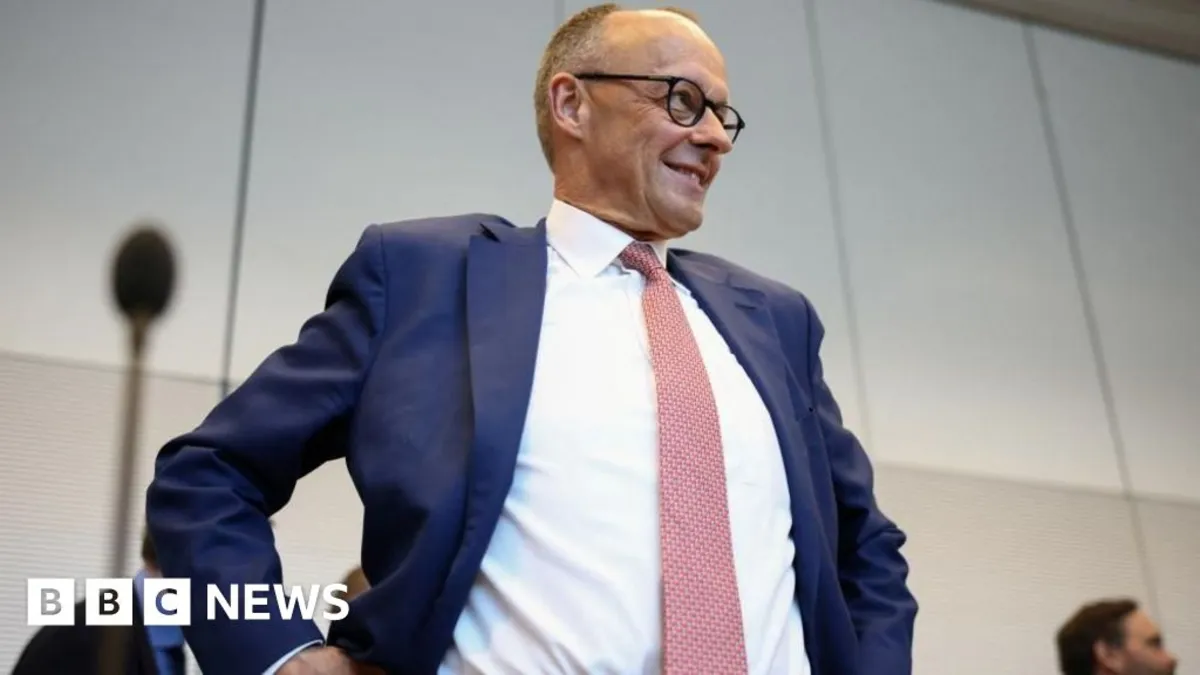
In a pivotal moment for Germany, the country is set to welcome conservative leader Friedrich Merz as its new Chancellor, marking the end of a prolonged political stalemate. At 69 years old, Merz aims to rejuvenate Germany's struggling economy and enhance its influence on the global stage. His ascension follows the collapse of the previous government, paving the way for a new coalition that must navigate significant challenges both domestically and internationally.
Friedrich Merz's election signals a resolution to Germany's recent political impasse, which has left the nation in a state of uncertainty. "It's our historical duty to make this government a success," Merz stated as he signed the coalition agreement on Monday. With a coalition comprising the CDU, CSU, and SPD, the new government holds a narrow majority of 328 seats—just twelve more than the minimum required.
The political landscape has shifted since February's federal election, during which the CDU/CSU alliance increased its support by a mere four points. In contrast, the SPD suffered a significant drop, recording its worst post-war performance. Merz and his supporters believe that effective governance can help alleviate rising voter discontent and restore confidence in the political system.
As he takes office, Merz has outlined several essential policies aimed at addressing Germany's pressing issues. His administration plans to tighten immigration rules, invest in the nation's deteriorating infrastructure, and strengthen ties with key European partners. Notably, he has already pushed through legislation that exempts defense and security spending from Germany's stringent debt limitations. This decision has been described as remarkable by Claudia Major, a senior vice-president at the German Marshall Fund in Berlin.
However, Merz faces a daunting task in convincing the public of the necessity to increase defense spending, particularly given the relatively low support for the governing parties. The political opposition, notably the far-right Alternative für Deutschland (AfD), is poised to challenge Merz's government consistently. The AfD now stands as the main opposition force in the Bundestag, advocating for stringent measures such as closing borders and halting military support for Ukraine.
Recent developments have heightened the stakes for Merz's government, as the AfD was classified as an extremist organization by Germany's domestic intelligence agency (BfV). This designation has sparked renewed discussions about a potential ban on the party, with the AfD subsequently announcing plans to sue the BfV for what it describes as abuse of power. The situation is further complicated by reactions from notable figures in Donald Trump's administration, including Vice President JD Vance, who publicly criticized the BfV's classification.
As a committed Atlanticist, Merz is tasked with managing Germany's relationships with both Europe and the United States. His comments on the need for Europe to achieve greater independence from the USA raised eyebrows during his election night speech. Nonetheless, Merz's government is expected to prioritize the transatlantic relationship, with speculation suggesting he might even engage in leisure activities like golf to strengthen ties with Trump, who is known for his love of the sport.
Merz's initial diplomatic trips are planned for Paris and Warsaw, where he aims to mend relationships that he believes suffered under former Chancellor Olaf Scholz. Agnieszka Pomaska, a member of the Polish Sejm from Prime Minister Donald Tusk's Civic Platform party, emphasized the importance of revitalizing German-Polish relations. "We need to invest together in the army, in defense," Pomaska stated, highlighting the challenges posed by a politically weak government in Germany during Scholz's tenure.
The incoming Merz government faces an array of challenges as it embarks on a mission to restore stability and confidence in Germany's political system. With a focus on key issues such as economic revitalization, defense spending, and international diplomacy, the success of Merz's administration will be crucial in shaping the future of Germany and its role in Europe.